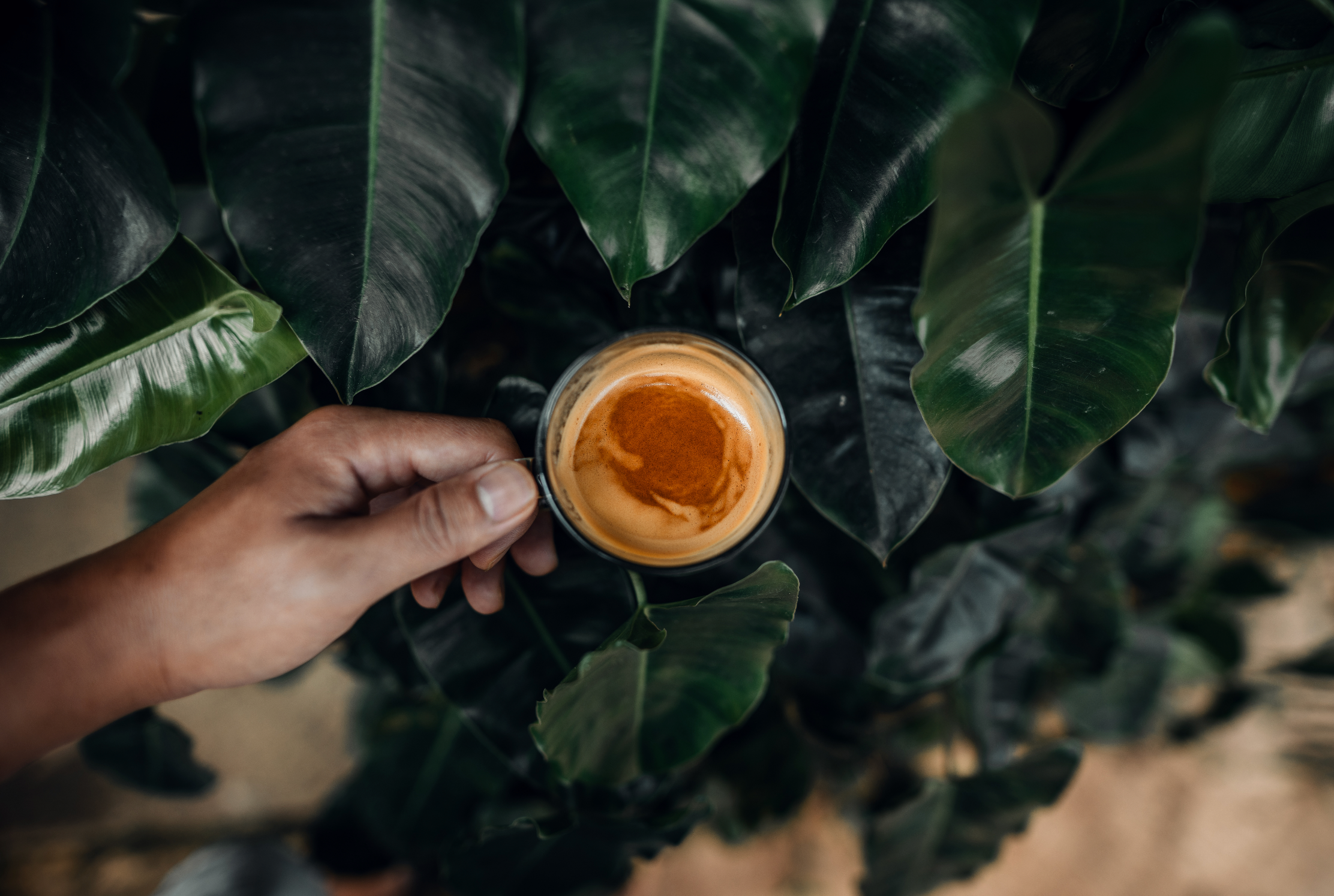

When it comes to choosing coffee, most people consider roast level, origin, or brewing method. However, one of the most critical decisions lies in whether to choose organic or non-organic coffee. Beyond just a label, the farming and processing methods behind these two categories impact everything from flavor and health benefits to environmental sustainability. Let's explore how these differences shape your coffee experience and why organic coffee might not always be the only choice.
 Organic coffee is grown in harmony with nature, following strict agricultural practices that prohibit synthetic pesticides, herbicides, and chemical fertilizers. Instead, organic farmers utilize shade-growing techniques, composting, and crop rotation to preserve soil health and promote biodiversity. Certification by organizations like USDA Organic or the EU Organic Certification ensures that these standards are met, making organic coffee a preferred choice for those prioritizing natural production methods.
Organic coffee is grown in harmony with nature, following strict agricultural practices that prohibit synthetic pesticides, herbicides, and chemical fertilizers. Instead, organic farmers utilize shade-growing techniques, composting, and crop rotation to preserve soil health and promote biodiversity. Certification by organizations like USDA Organic or the EU Organic Certification ensures that these standards are met, making organic coffee a preferred choice for those prioritizing natural production methods.
Without exposure to artificial chemicals, organic coffee beans develop in nutrient-rich soil, often resulting in a cleaner, more robust taste. Many enthusiasts claim that organic coffee delivers a more authentic experience, allowing the natural flavors of the beans to shine through without interference.
 Non-organic coffee, or conventionally grown coffee, is typically cultivated with the aid of synthetic fertilizers and pesticides. These farming techniques are designed to maximize yield and protect crops from pests and diseases. While this approach ensures consistent production, it also raises concerns regarding environmental degradation and potential chemical residues.
Non-organic coffee, or conventionally grown coffee, is typically cultivated with the aid of synthetic fertilizers and pesticides. These farming techniques are designed to maximize yield and protect crops from pests and diseases. While this approach ensures consistent production, it also raises concerns regarding environmental degradation and potential chemical residues.
In large-scale conventional coffee farming, deforestation is common as land is cleared to create more farmland. The widespread use of agrochemicals can deplete soil health, pollute water sources, and pose risks to farmers' health. However, non-organic coffee farming isn’t universally bad—many non-organic coffee producers implement responsible practices and strive to minimize their environmental impact.
Fair Trade vs. Mass Production: While some conventional farms prioritize fair wages, others exploit labor and contribute to unfair market conditions.
Health Risks for Farmers: Exposure to synthetic chemicals poses potential risks to coffee farm workers.
 The debate over whether organic coffee tastes better than non-organic coffee depends on several factors, including soil conditions, elevation, and processing methods. Organic coffee is often grown in higher-altitude regions with nutrient-dense soil, leading to more complex and vibrant flavors. The absence of chemical residues allows for a more natural and nuanced taste.
The debate over whether organic coffee tastes better than non-organic coffee depends on several factors, including soil conditions, elevation, and processing methods. Organic coffee is often grown in higher-altitude regions with nutrient-dense soil, leading to more complex and vibrant flavors. The absence of chemical residues allows for a more natural and nuanced taste.
However, non-organic coffee can also deliver high-quality flavors, particularly when grown by reputable producers who emphasize ethical and sustainable practices. Some conventional farmers prioritize terroir-driven methods that result in exceptional coffee, despite not being certified organic.
Beyond taste, the choice between organic and non-organic coffee carries significant environmental and ethical implications.
Protects Biodiversity: Shade-grown organic coffee preserves habitats for birds and wildlife.
Improves Soil Health: Avoiding synthetic fertilizers maintains long-term soil fertility.
Reduces Water Contamination: Organic farming prevents harmful chemical runoff into waterways.
 While organic coffee has clear environmental and health advantages, non-organic coffee isn't always a poor alternative. Many high-quality non-organic coffee farms operate sustainably without seeking certification, using ethical labor practices and prioritizing quality-driven farming methods. Some of these farms invest in conservation efforts, responsible water use, and better working conditions despite not carrying an official organic label.
While organic coffee has clear environmental and health advantages, non-organic coffee isn't always a poor alternative. Many high-quality non-organic coffee farms operate sustainably without seeking certification, using ethical labor practices and prioritizing quality-driven farming methods. Some of these farms invest in conservation efforts, responsible water use, and better working conditions despite not carrying an official organic label.
For coffee lovers, the decision between organic and non-organic coffee ultimately depends on personal priorities. If sustainability, chemical-free farming, and ecosystem preservation are essential to you, organic coffee is an excellent option. However, if you're more focused on taste and specific growing regions, some non-organic coffees might still meet high ethical and quality standards.
At Opaqa, we believe in transparency and ethical sourcing. Our organic coffee collection reflects our commitment to quality and sustainability, offering an exceptional coffee experience while supporting responsible farming practices.
Shop our carefully curated organic blends and discover the difference for yourself. Explore Opaqa’s Organic Coffee.
Share:
Why Choose Organic Coffee?
5 Ways to Go Green with Your Coffee Ritual